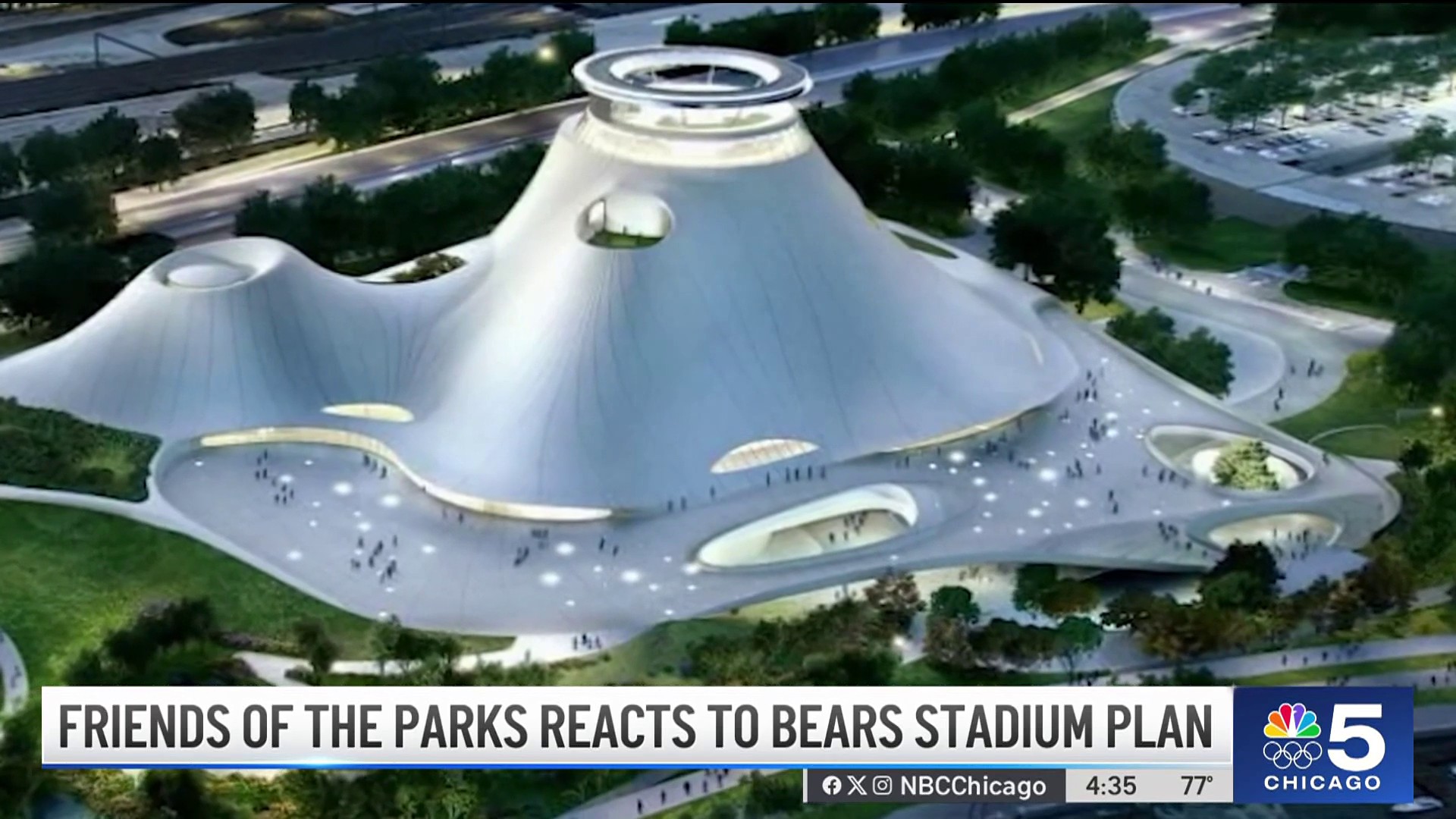A developer working on the White Sox's project to build a new stadium told the Chicago Sun-Times that both the Sox and the Bears are trying to create a "financial partnership" regarding their joint desire for public funding for their respective stadium desires.
"We’re working with them … to have a financing partnership that makes sense for us and for them and for the city and the state," President of Related Midwest Curt Bailey told the Sun-Times.
MORE: Questions we're asking about the White Sox, Bears stadium dilemma
Recently, the state asked both teams to work together on a joint public funding plan for their stadium. Crain's Chicago Business was the first to report this news. State Senate President Don Harmon specifically has told both teams there is little appetite in the General Assembly to approve separate stadium legislation, according to Crain's.
The request for both teams to work in solidarity on a financial plan makes sense for the state to avoid, as Harmon told Crain's "referee[ing] fights between billion-dollar sports franchises." That way, the state can maintain positive relationships with both teams.
A source close to the Bears confirmed to NBC Chicago the team has “always been willing to work with any Chicago team." Reinsdorf also told Crain's that he doesn’t “want to be in competition with the McCaskeys," either.
Yet still, that begs the question --- are both sides willing to work on a joint funding plan? Better yet, is it within their respective interests to combine forces, versus fighting for their own case?
Chicago Bears
"I think it will make sense for them to work together because there is the danger that they 'won't get picked' if they try to go in alone. Admittedly, that risk is lower for the Bears, but it is still there," Economist/Davidson College professor Fred Smith said in a text conversation with NBC Sports Chicago.
The risk, as Smith said, is admittedly lower for the Bears than for the White Sox. Why? Simply put, the Bears' stadium plans offer a greater chance of true economic benefits for the city and state, compared to the White Sox.
Feeling out of the loop? We'll catch you up on the Chicago news you need to know. Sign up for the weekly Chicago Catch-Up newsletter here.
If the White Sox and Bears were to engage in a fight for the state's support of their respective stadium, the Bears would have a clear advantage, experts say.
The name of the game in stadium economics is outside dollars, Smith said. The ability to draw dollars from outside the city and state is how the local economy would benefit from a stadium project.
The Bears have stated they plan to build a stadium with a roof for year-round usage. Assuming they also plan to build a stadium with a larger capacity than Soldier Field's paltry 61,500-seat capacity, they'll have a stadium much larger than the White Sox's.
That means they'll have the bandwidth to host NCAA tournament games, Super Bowls, WWE events, concerts, etc. Those events generate useful dollars for the city/state, as opposed to a White Sox stadium relying on the city's dollars to back the cost of their stadium and outstanding bonds.
“If you look at the proposal from the White Sox, it looks like a gorgeous ballpark and there’s retail and commercial development around it, maybe some hotels," Smith told NBC Sports Chicago. "That’s definitely going to increase the economic vibrancy around that neighborhood.
"But at the end of the day, all that’s doing is changing where people are spending their dollars. If people are spending their dollars in that neighborhood, then maybe they’re not spending their dollars in Logan Square, or maybe they’re not spending their dollars in Wrigleyville."
The White Sox have benefits they can point to over the Bears, too, to be fair.
“What works in the White Sox's favor is you do get some fans coming in from the metro to baseball games," Smith said. "The fact that you have 81 home games. The frequency of the home games does help there. But you’re obviously not hosting a Final Four in a ballpark.”
If the Bears and White Sox entered into a dogfight over the state's support, it's likely the state would opt for the team worth twice the amount of the other, and the one with a significantly better chance to yield positive economic results from their respective stadium plan.
But if the White Sox, the Bears, and the state can find common ground on a financial plan, everyone wins, in theory. Stay tuned to see how each team reacts to creating a joint plan, and whether or not they'll decide to join forces on this venture.



